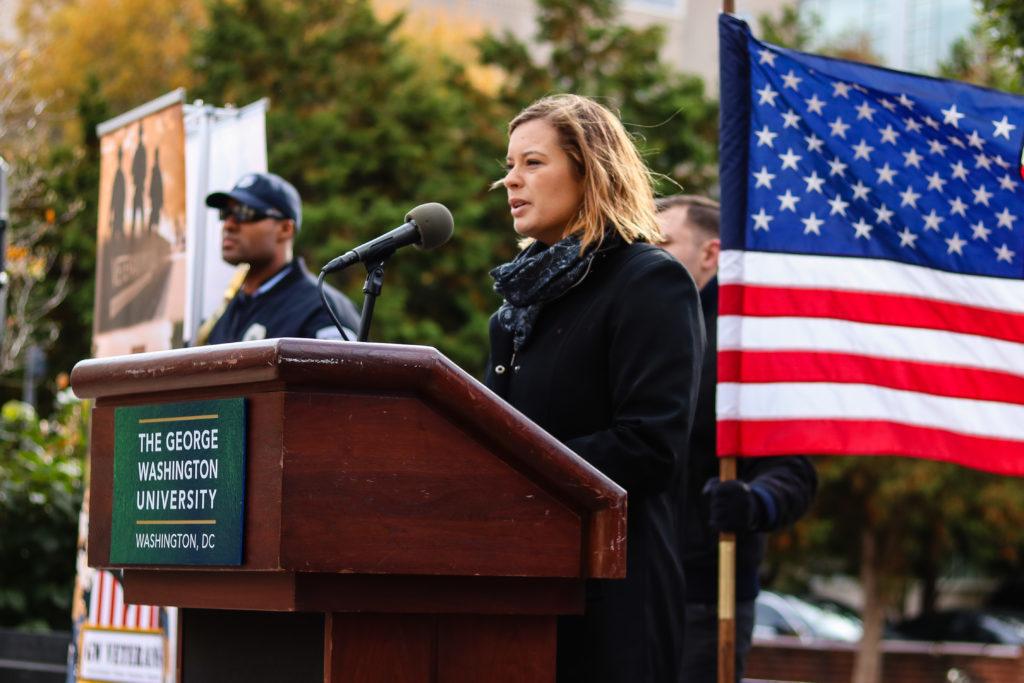About 30 people gathered in Kogan Plaza Friday morning for the annual Veterans Day wreath-laying ceremony to honor veterans and current military personnel.
The ceremony opened with the presentation of colors by the GW NROTC Color Guard, while Anthony Evans, a 2015 graduate and the former president of GW Veterans, played the National Anthem on the saxophone.
Attendees heard speeches from keynote speaker University President Thomas LeBlanc and members of the GW military community, which includes more than 1,800 military-affiliated students.
1. Veterans strengthening GW
LeBlanc, who has military connections through his father and brothers, said he expects to see past, current and future student veterans taking on leadership roles in public and private services.
“The veterans who attend GW strengthen our University, strengthen the student experience and bring honor to our institution,” LeBlanc said in his keynote speech. “We’re delighted to have you here at GW.”
GW has a unique opportunity to support and continue supporting veterans today through education, LeBlanc said. He concluded by wishing student veterans the best of luck as they continue on their journey through GW.
2. ‘Every veteran has a story’
Victoria Pridemore, the associate director of the Office of Military and Veteran Student Services and a platoon sergeant for the Virginia Army National Guard, spoke about how veterans’ stories are “the stories of our generation.”
Pridemore mentioned several current day veterans who tell their stories in their everyday lives, one being Emanuel Johnson — a Navy veteran who graduated from the Columbian College of Arts and Science this spring and previously served as the president of GW Veterans.
Johnson took his experience working with veterans at GW to Illinois, where he currently works with the Robert R. McCormick Foundation, distributing grants to nonprofits helping veterans, she said. Johnson, along with many others, is telling his story through his actions in his job and daily life, she said.
“Together, we must write the story of our wars and our generation,” Pridemore said. “Every veteran has a story to tell and every veteran’s story matters.”
3. Family sacrifice
Hank Molinengo, senior associate dean for administrative affairs at the law school and a retired Navy Rear Admiral, said veterans and their families have sacrificed a lot to serve.
“Veterans are synonymous with sacrifice and service,” Molinengo said.
For many veterans, service was important enough to endure a long time away from their family, Molinengo said. The families of veterans are also synonymous with sacrifice, he said.
Molinengo said he was in the Pentagon on 9/11 and when he got home, the first thing reported to him was that his 13-year-old daughter’s school provided counseling to military children whose parents might have been lost or injured in the attack.
“When this happened, it brought home to everyone that frankly, in this war on terror, that all of us are on the front lines,” Molinengo said.
Fewer than 10 percent of U.S. citizens can claim the title veteran and less than 1 percent are currently defending the country, he said.
“We need to remind our fellow citizens who have not had the opportunity to serve what it means to serve in the military,” he said. “Veterans have given us freedom and security. It is impossible to put a price on that.”




